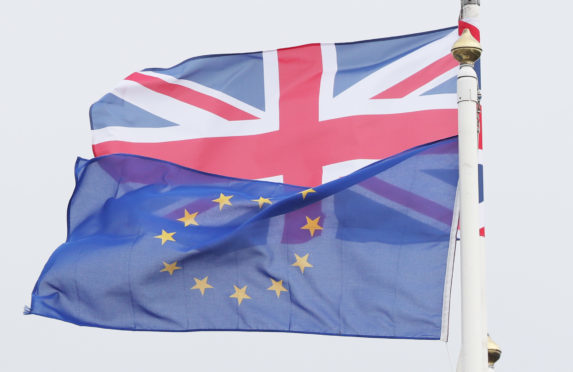It’s good to talk. To weigh up the pros and cons of a problem. To review the evidence and examine the options.
But there comes a moment when the talking has to stop. A time when the action has to start. A time when, whatever side of the debate you were on, you just have to knuckle down and just get on with it. A time when careful consideration risks becoming needless prevarication.
So it is with Brexit. And so it is with building a country ready and able to meet the challenges of a world jam-packed with opportunity but bursting with competition. More on that later.
But first, the weekend papers were full of doom and gloom about the consequences of no deal on Brexit and the Armageddon we would face if our ports came to a shuddering halt. Food and medicines running out after a few days and the country in melt down. It was alarming stuff. But alarmist too.
Why? Because I remain convinced we will strike a deal. And, in the unlikely event that we don’t, does anyone seriously think that Europe would cut us off, threaten us with starvation and choke us of essential supplies?
I understand that it is the job of civil servants to map out all the possible scenarios to ensure that all contingencies are covered. But, apart from the UK government denying the details and “not recognising” the alleged contents, trade is a two way street. The remaining EU need our goods as much as we need theirs. Some would argue they need us more than we need them. So paralysed ports are in nobody’s interest. It won’t happen.
And thus, whilst the headlines make gripping and sensational reading, back in the real world our efforts need to be focused on getting Brexit sorted. A new trade deal with Europe. Mutually beneficial so that German cars and Danish bacon can still come to Britain, and Scottish seafood can still be sold to Spain and France.
That is where all our efforts must be concentrated. Not on endless reruns of the referendum nor arguments about what Brexit really meant to the voters two years ago. But on action on trade deals needed two years from now. On consolidating our existing markets and building new ones. On facing up to the challenges and embracing the opportunities.
It is time to stop talking amongst ourselves and start doing deals. The Brexit clock has ticked for long enough.
So if it is time for action on Brexit, so it is with building Britain’s connections with the world. Because we live on a shrinking planet. A hundred years ago, it took a month to travel to the other side of our globe. Today, everywhere is in reach within one day. So the world has got smaller but our neighbourhood has got a whole lot larger and busier.
Which means the demands on our aviation infrastructure are growing all the time. People and products need to fly. Six years ago, the UK Government started the process about where to build that extra capacity. Another runway at Gatwick, or Heathrow? Or even, as Boris suggested, a brand new airport on the Thames Estuary.
Thus ensued fierce debate. And detailed and expert reports. And strong opinion and partisan voices.
This was a big decision. One that initially split communities. It created local anger coupled with local hope of more jobs. The national interest versus community concerns. That was all understandable. But it was unavoidable. Britain needs to build its capacity to sell to the world. Our island history has been build on trade. Our future depends on it. And for Scotland, we need to be able to send our premium products to every continent.
So, six years later, Heathrow has emerged as the chosen option. Parliament is expected to have its say soon on signing off the plan.
Heathrow has moved to dispel local fears. They want an expansion which can turn the airport into a world leader in local mitigation measures.
Local protection, but National importance. This is not just about London and the south east. This matters to Scotland. There are an estimated 16,000 jobs coming our way in associated development works. We need the extra facilities to keep our products flowing around the globe – salmon exports via Heathrow are worth nearly a quarter of a billion pounds a year. And ensuring that London’s airport capacity can cope means more connections with Scotland. Which brings more tourists.
Inverness is a case in point. Recent direct flights from London has led to a big increase in tourism and business investment.
With up to 15% of new slots reserved for domestic flights and a predicted doubling in freight, there will be lots of benefits for Scotland. We need to get on with it.
The debate about which airport is over.
The time for talking is over. Six years is long enough.
Scotland needs the green light to be given. Scotland’s economy is cleared and ready for take off.
I hope that all of Scotland’s MPs and our Scottish Government can agree. As one. For our travellers, for our businesses and tourism and for our economy. For our best future. For Scotland.
